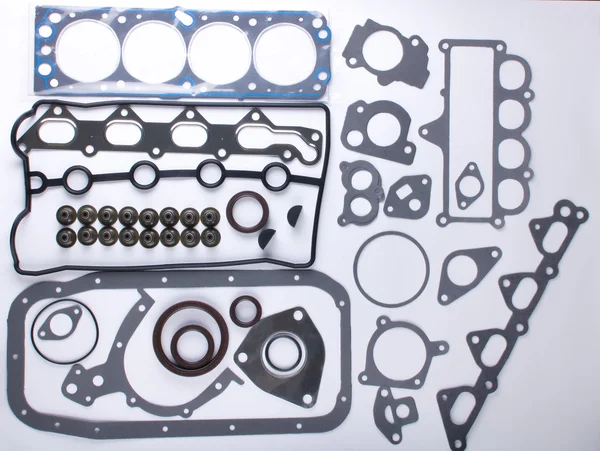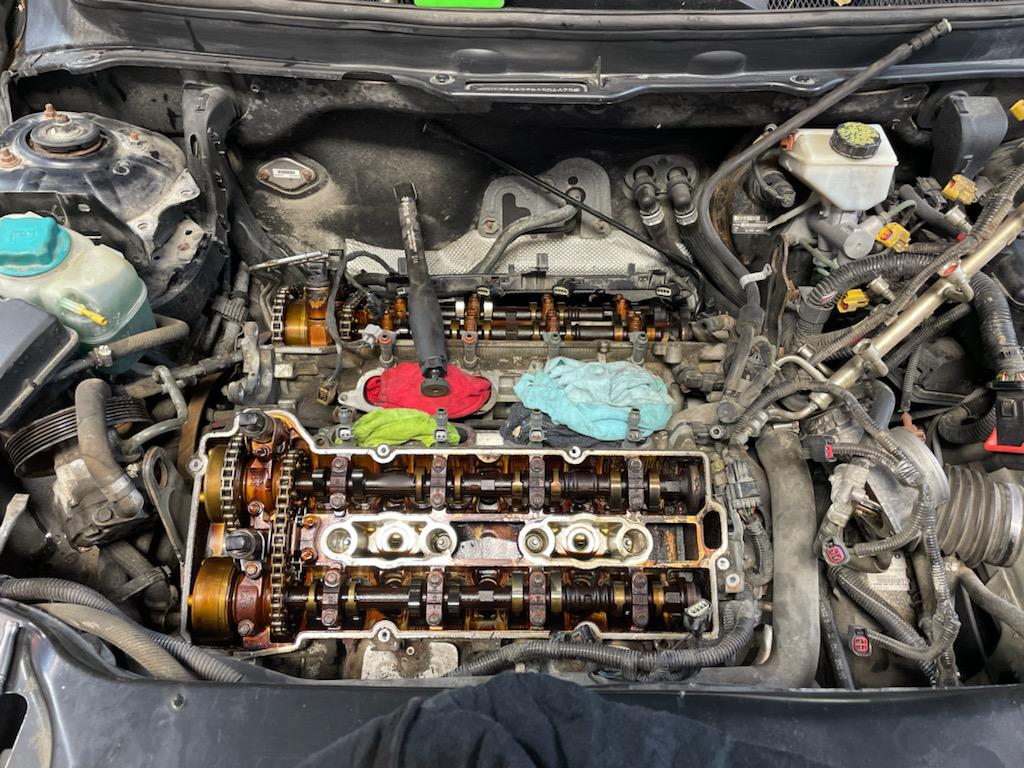Contents
Valve Cover Gasket Introduction
The Valve Cover Gasket may seem like a small and insignificant part of an engine, but it plays a crucial role in ensuring the proper functioning of the vehicle. Located on top of the engine block, the valve cover gasket acts as a seal between the valve cover and the cylinder head. Its primary purpose is to prevent oil from leaking out and contaminating other engine components. Without a properly functioning valve cover gasket, oil leaks can occur, leading to decreased engine performance and potential damage.
Signs of a failing valve cover gasket include visible oil leaks around the edges of the valve cover, burning oil smell coming from under the hood, or an increase in oil consumption. Ignoring these signs can lead to bigger problems down the road, such as loss of engine power or even catastrophic engine failure.

Valve Cover Gasket symptoms
Regular maintenance and inspection are key when it comes to ensuring that your vehicle’s Valve Cover Gasket remains in good condition. Checking for any signs of leakage during routine service appointments can help identify issues early on before they escalate into more severe problems. Additionally, keeping an eye on your vehicle’s oil levels and quality can also provide valuable insights into potential Valve Cover Gasket symptoms issues.
Signs of a faulty valve cover gasket
A faulty valve cover gasket can cause a variety of issues in your car’s engine. One sign that your Valve Cover Gasket replacement may be faulty is oil leakage. This can occur when oil leaks onto hot engine parts and starts to burn, producing a distinct odor. Pontiac Aztek
In addition to oil leakage and burning smells, another sign of a faulty valve cover gasket is decreased engine performance. When the Valve Cover Gasket leak fails to seal properly, it can lead to an imbalance in air-fuel mixture within the combustion chamber. As a result, the engine may experience misfires or rough idling. Furthermore, you may also notice an increase in fuel consumption since the engine has to work harder to compensate for the loss of compression caused by the faulty Valve Cover Gasket leak. Overall, being aware of these signs can help you identify if your vehicle’s valve cover gasket needs attention and prevent further damage to your car’s engine.

valve cover gasket replacement cost
Valve cover gasket replacement cost is an inevitable expense for car owners, especially those with older vehicles. The valve cover gasket is a vital component of the engine, responsible for sealing the gap between the valve cover and the engine block. Over time, due to wear and tear or heat exposure, this gasket can deteriorate and lead to oil leaks. As a result, it becomes necessary to replace the valve cover gasket to maintain optimal engine performance. Maruti Suzuki Jimny
Valve Cover Gasket replacement cost
When considering the cost of Valve Cover Gasket replacement cost, several factors come into play. Firstly, the price of the actual gasket itself can vary depending on your vehicle’s make and model. Additionally, labor costs will also factor into the overall expense as it involves removing various components to access the Valve Cover Gasket leak symptoms area. It’s important to note that while some car owners may opt for DIY repairs to save money on labor costs, it is recommended to seek professional assistance unless you have experience working on engines.
Valve Cover Gasket Price
While determining an exact cost for valve cover gasket replacement is challenging due to varying factors such as location and vehicle type, it typically Valve Cover Gasket Price from $200-$500 including parts and labor. However, it’s always wise to obtain quotes from multiple mechanics or service centers before proceeding with any repairs. Although this repair might seem Valve Cover Gasket Price at first glance, keep in mind that neglecting a faulty valve cover gasket could lead to more significant engine issues down the line if not addressed promptly.
Conclusion
Firstly, a healthy valve cover gasket ensures that there are no oil leaks which can be detrimental to the engine’s performance. Oil leaks can cause a decrease in oil pressure and loss of lubrication, leading to excessive friction between moving parts. This friction accelerates wear on critical components such as valves, camshafts, and lifters. Additionally, oil leaks can result in a loss of oil quantity within the engine, affecting its ability to cool down and causing overheating issues.